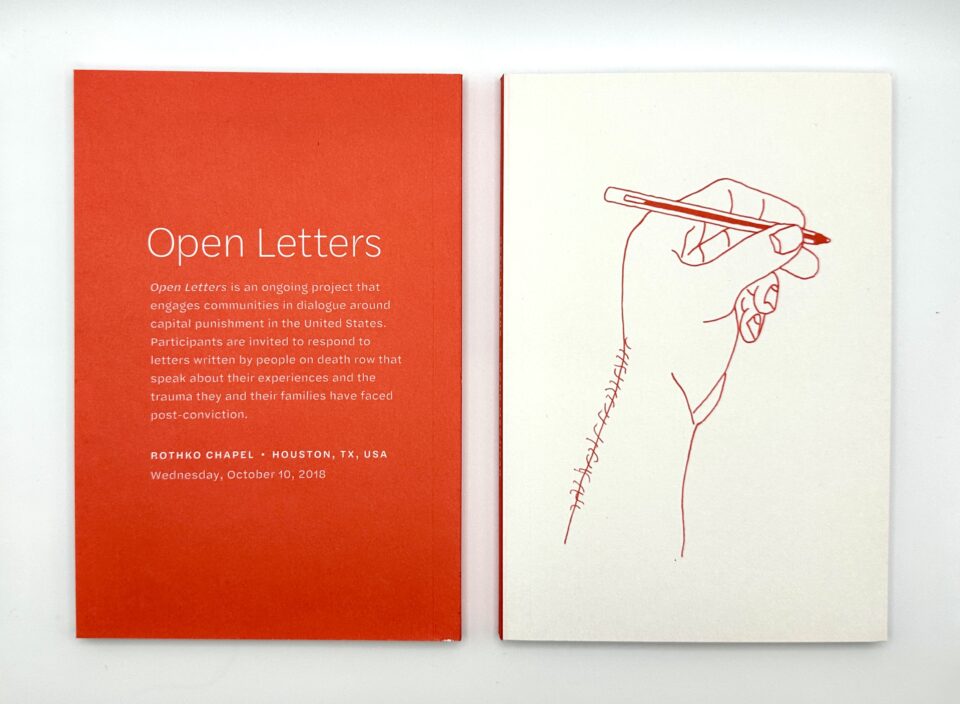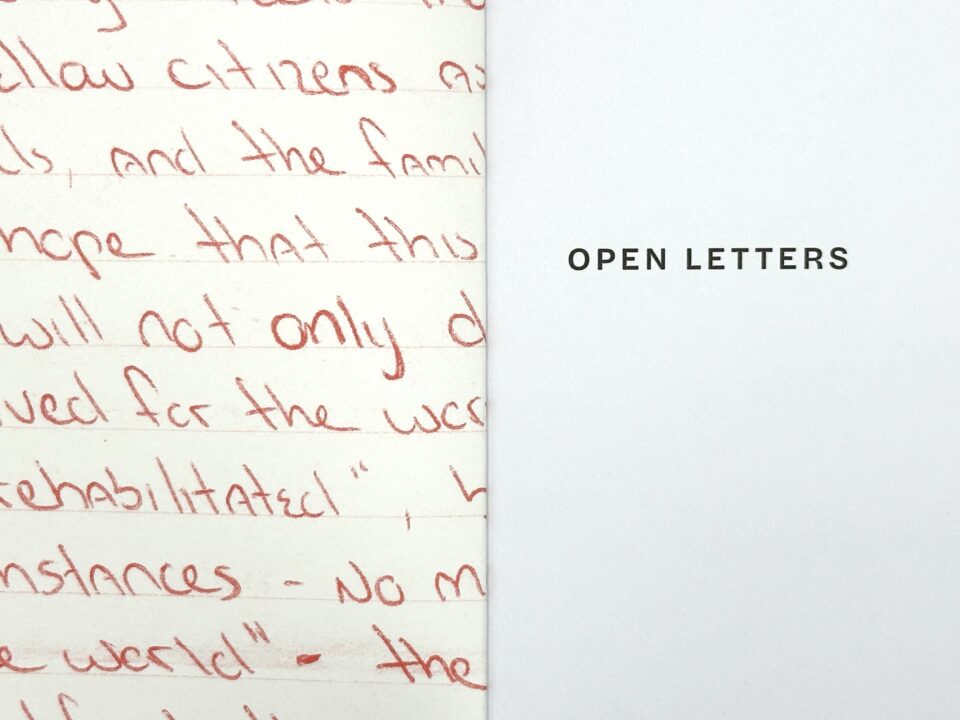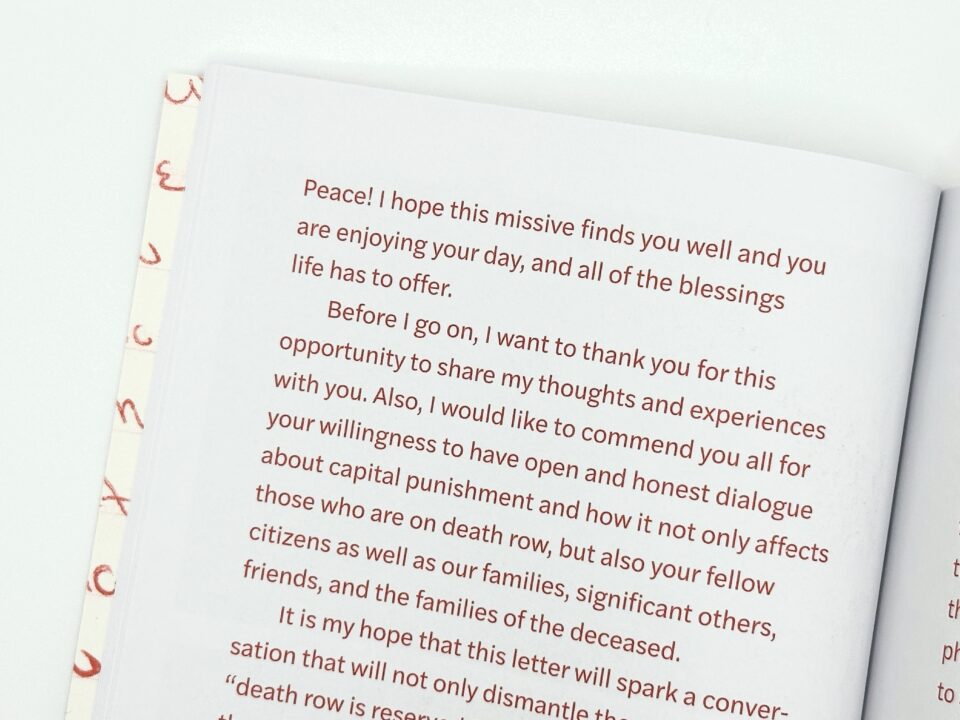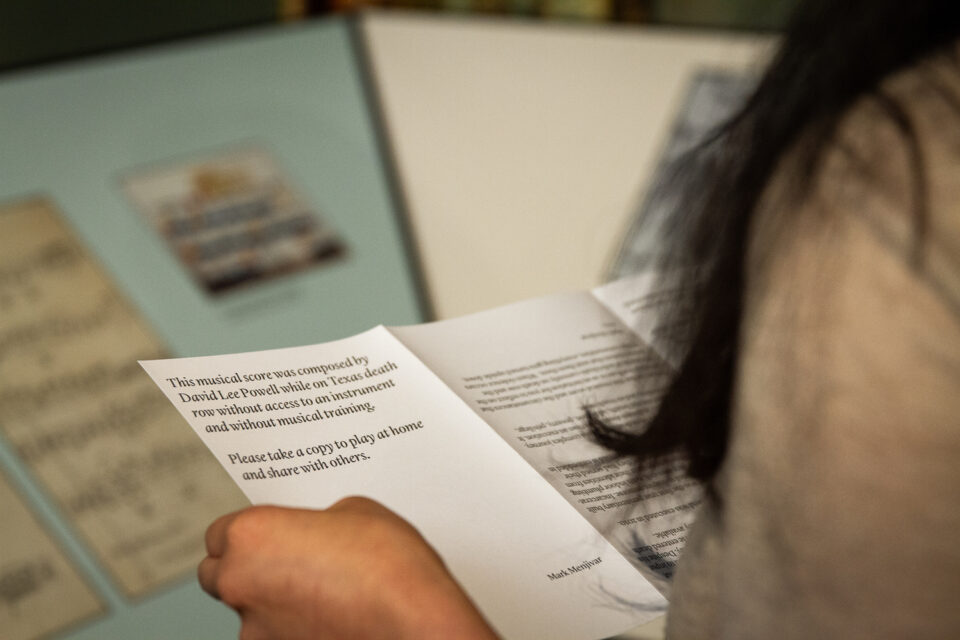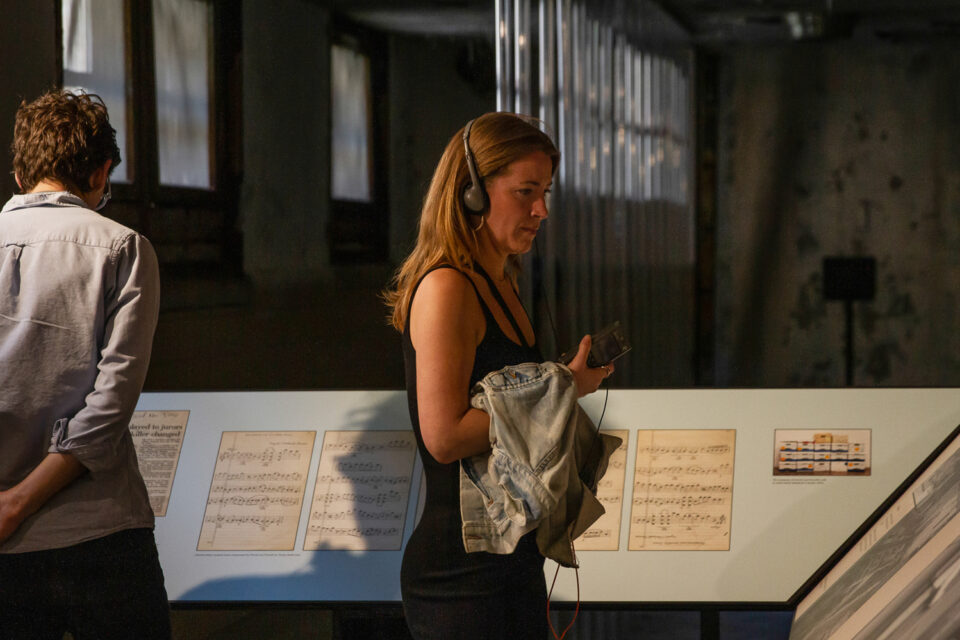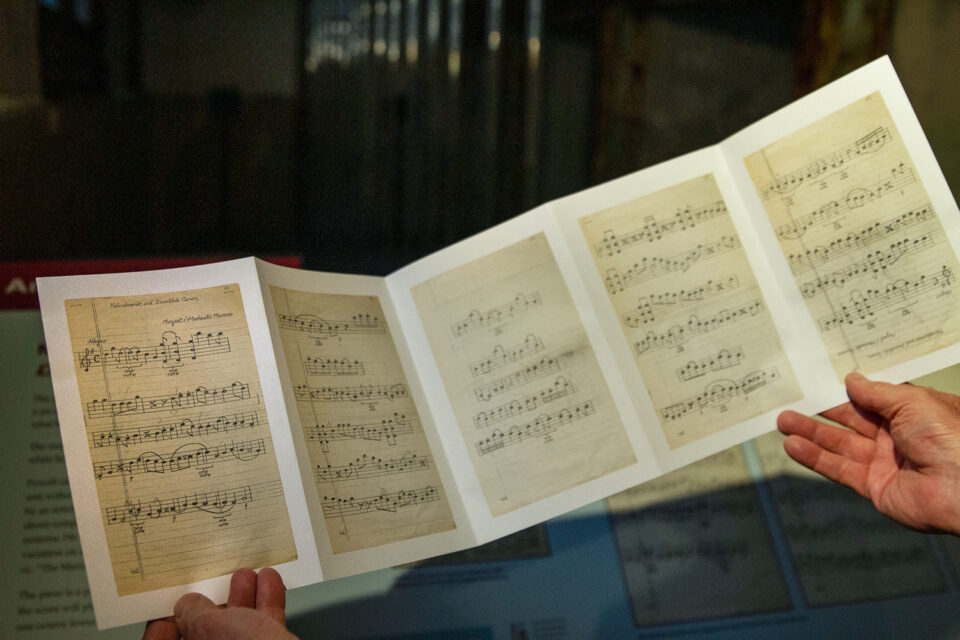Texan Artist Mark Menjívar Introduces Audiences to the Aftermath of Incarceration
By Becky Brown
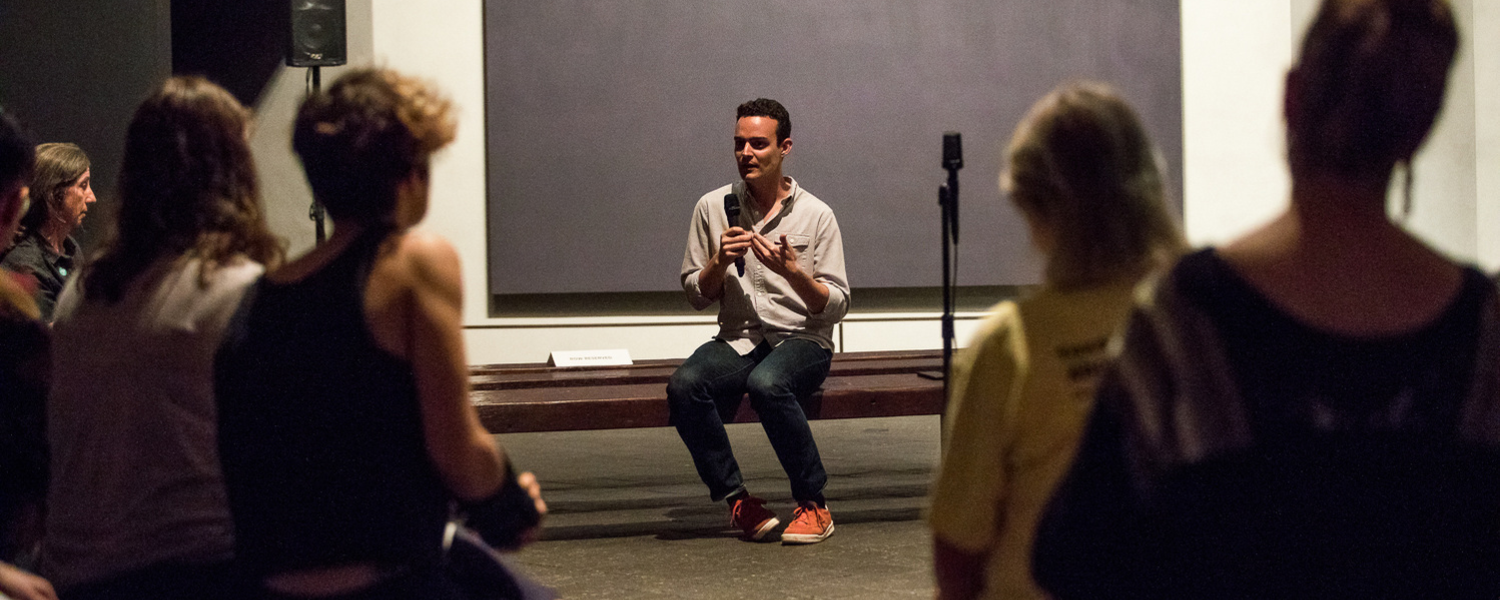
Some stories stay hidden, locked away. Texan artist Mark Menjívar is working to bring these narratives into the light.
His project Open Letters introduces audiences to the stories of individuals incarcerated on Texas’s death row. But these aren’t tales of crime or courtrooms—they’re about families, trauma, and spirit.
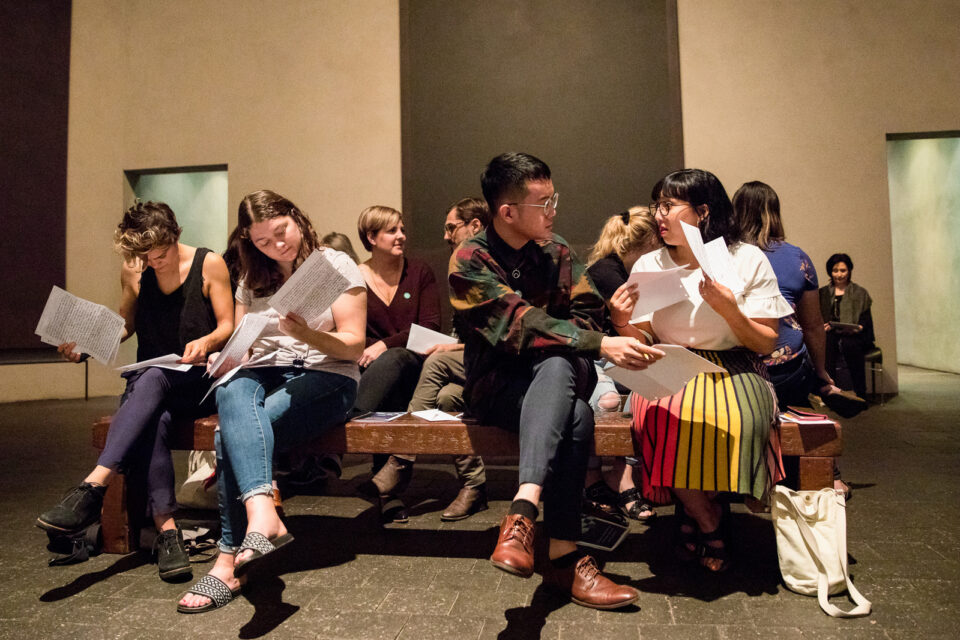
Mark Menjívar, Open Letters reading at Rothko Chapel in Houston, Texas. Photo by Scott Dalton.
Socially engaged art pushes boundaries and opens new worlds.
And that’s just what Open Letters does.
“I’ve been working on issues around capital punishment for the last decade because Texas has led the United States in executions since 1976,” Mark says. “I care deeply about trauma and how it impacts our communities. This project explores the trauma families have faced post-conviction. There’s no mention of the crime, just the aftermath.”
Open Letters started with just that: open letters from individuals on death row. Mark collaborated closely with writers who share their experiences, from the impact on the lives of their loved ones to what it’s like when a close friend is executed. It’s work that’s breathtaking in its honesty.
Thanks to a grant from Mid-America Arts Alliance’s Interchange artists program, Mark planned to present these letters at a series of events around Texas. Attendees would then share their reactions one on one, then Mark would facilitate a larger discussion. The initial event at Rothko Chapel in Houston, Texas, was moving and thought provoking. But the pandemic soon impacted the schedule.
“I appreciate that M-AAA staff opened up the project,” Mark says. “They allowed us to throw out all the timelines, and they said, ‘Do whatever you need to do to serve yourself, your family, and your practice.’ We could hit the reset button and use our time and our funds however we needed.”
In 2020, 11 Open Letters events were canceled. Mark tried to hold events via video, but it just wasn’t the same. So he turned to print.
- Mark Menjívar’s Open Letters publication is copyleft.
Community-based art often means finding unique ways to connect with your community.
Mark’s tool of choice is a small publication. In place of the opening talk that he would give at events, it includes an introduction. While copies of multiple handwritten letters would be handed out at events, the book includes one letter, and it’s typewritten for readability and accessibility. The book utilizes the technique of rubrication, using red ink to draw attention to the text from the incarcerated author. Finally, the book doesn’t have a copyright. Instead, it has a copyleft.
“A copyright means we don’t want people to change anything,” Mark says. “This is intentionally copyleft. Any portion of the book can be copied and used in your own way. I’d love it if people were holding events in their own communities, even if it’s just a small group of friends. Make it your own.”
The initial print run of 3,500 copies is being distributed at book fairs and events, as well as at Rothko Chapel. Mark considers the publication a tool.
“It’s an object to be activated,” Mark says. “Our hope is to need a second printing.”
And it’s just part of his work to bridge the worlds of art and incarceration. Open Letters has led to Mark’s Currently exhibition at Haverford College. He’s also created DLP Mirror, a multi-channel sound and architectural installation at Eastern State Penitentiary in Pennsylvania. Mark is also hoping to do Open Letters activations in other states that maintain death rows, and find additional venues for Currently (USA), his project that maintains signs with up-to-date data about the number of people on death row in each state.
This social change project is more than multi-media. It is multi-experience.
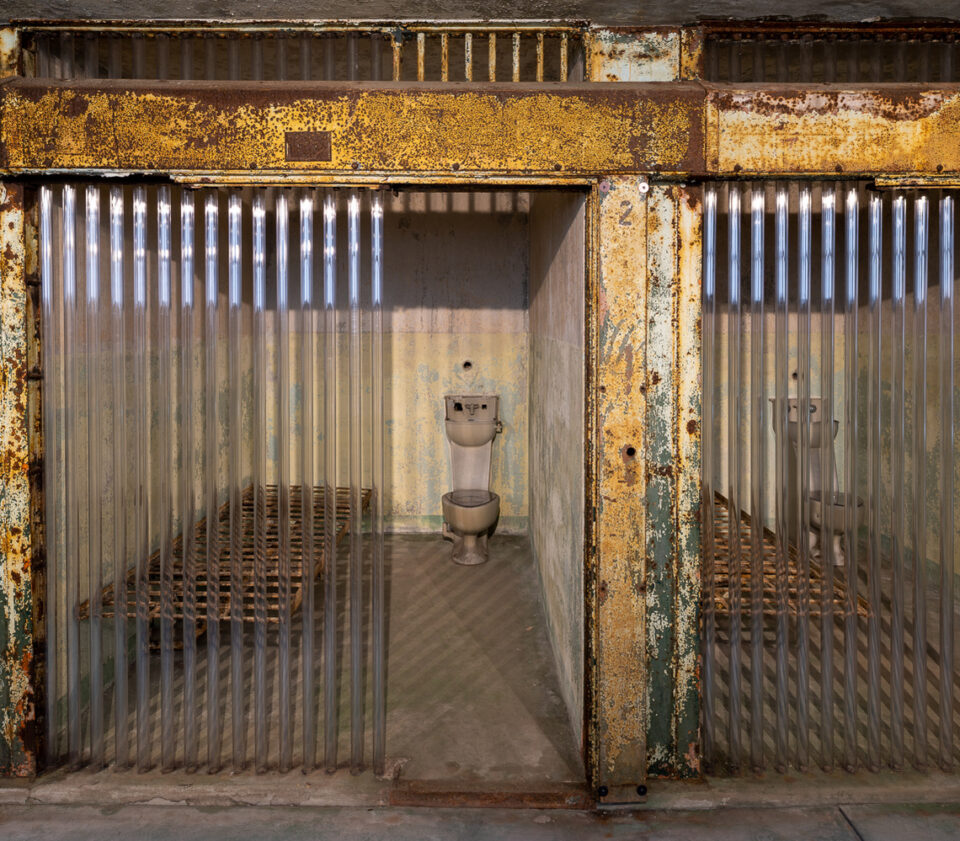
DLP Mirror is a multi-channel sound and architectural installation activating a musical score composed by David Lee Powell while incarcerated on Texas death row. By Mark Menjívar. Photography by Ricky Yanas.
“I’m always trying to find multiple entry points into the work,” Mark says. “I want everyone to be able to engage with the work, to find a place where their own story rubs up against it.”
This complexity honors the fact that the stories and the experiences aren’t simple.
“I care deeply—not just about the 180 people currently on death row in Texas with hard, complicated stories, stories of tragedy and acts of violence—but I care so deeply for my community,” Mark says. “I’m working harder for it to become what I hope it can be, which is a place of compassion and empathy.”
He’s also aware that he’s working in the space between art and activism.
“Activism sometimes tries to tell you exactly what to do. Art might say, ‘There’s nothing to do,’” Mark says. “I like to operate in between. I may not have every answer, but together, we can create a better question.”
If you are interested in receiving a copy of Open Letters, you can contact Mark directly at mjmenjivar@gmail.com. Learn more about Mark here.
- DLP Mirror by Mark Menjívar. Photos by Ricky Yanas.
Header photography: Mark Menjívar at Open Letters reading at Rothko Chapel. Photography be Scott Dalton.


